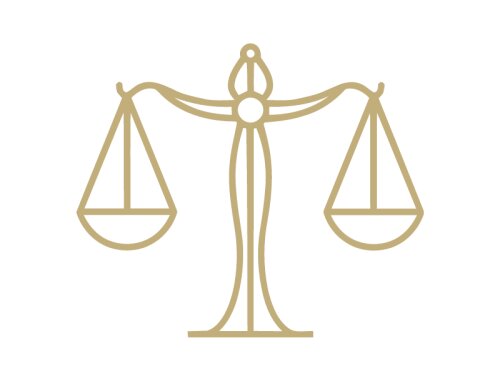Best Wage & Hour Lawyers in Rijswijk
Share your needs with us, get contacted by law firms.
Free. Takes 2 min.
List of the best lawyers in Rijswijk, Netherlands
About Wage & Hour Law in Rijswijk, Netherlands
Wage and hour law in Rijswijk, Netherlands refers to the rules and regulations that govern how employees are paid and the number of hours they are expected to work. As part of the Dutch legal system, these laws are designed to ensure that workers receive fair compensation and that employers meet their legal obligations. Wage and hour law covers topics such as minimum wage, working hours, overtime pay, holiday entitlements, and rest periods. Both employers and employees in Rijswijk must comply with these rules to foster a fair and safe workplace environment.
Why You May Need a Lawyer
Legal assistance in wage and hour matters can be crucial. You might require the help of a lawyer if you are experiencing issues such as unpaid wages, discrepancies in overtime calculations, or disagreements regarding employment contracts. Many people seek legal advice when faced with wrongful termination, disputes over shift schedules, or when employers are not following agreed terms related to pay or working hours. A lawyer can help clarify your rights, represent you in negotiations or legal proceedings, and guide you through the process of making formal complaints or claims.
Local Laws Overview
The Netherlands has comprehensive labor laws that also apply in Rijswijk. The key legislation includes the Dutch Civil Code (Burgerlijk Wetboek), the Working Hours Act (Arbeidstijdenwet), and the Minimum Wage and Minimum Holiday Allowance Act (Wet minimumloon en minimumvakantiebijslag).
- Minimum Wage: Employees aged 21 and over are entitled to the statutory minimum wage, which is adjusted every six months.
- Working Hours: The standard workweek is generally 36 to 40 hours, with specific rules about maximum daily and weekly hours, as well as mandatory rest times.
- Overtime: Dutch law does not require a specific overtime premium, but contracts or collective agreements (CAOs) may stipulate extra pay for overtime work.
- Breaks and Rest Periods: Employees have the right to rest breaks during the workday, as well as minimum break times between shifts.
- Holiday Entitlement: Employees are entitled to a minimum of four times their weekly number of working days as paid holiday per year.
- Child Labor and Youth Employment: Specific rules exist to protect young workers, limiting their hours and the type of work they may do.
Many of these rules are enforced by the Dutch Labour Inspectorate (Inspectie SZW), which investigates complaints and can enforce penalties.
Frequently Asked Questions
What is the minimum wage in Rijswijk, Netherlands?
The minimum wage is set nationally and is updated twice yearly. As of 2024, employees aged 21 and over must receive at least the statutory minimum wage per month, week, and day. Separate lower rates apply for younger workers. Always confirm the current rate as it may change.
How many hours can I be required to work per week?
For most employees, the maximum working hours are 12 hours per shift and 60 hours per week, but on average, over a four-week period, you cannot work more than 55 hours per week, and over a 16-week period, no more than 48 hours per week.
Am I entitled to extra pay for overtime?
Dutch law does not mandate overtime premiums unless specified in your employment contract or collective agreement. Many employers and CAOs do provide additional pay for overtime work.
What are my rights regarding breaks and rest between shifts?
You are entitled to a 30-minute break if you work more than 5.5 hours and a 45-minute break if you work more than 10 hours. There must also be an uninterrupted rest of at least 11 hours between shifts, except in exceptional circumstances.
How much holiday am I entitled to?
Employees are entitled to a minimum of four times their weekly working hours as paid annual leave. For full-time employees (40 hours per week), this equates to at least 20 days off per year.
Can my employer lower my salary below the minimum wage?
No, it is illegal for employers to pay less than the statutory minimum wage. Any agreement to the contrary is not enforceable by law.
What can I do if my employer is not paying me correctly?
You should first raise the issue directly with your employer. If the issue is not resolved, you can seek advice from a legal expert, your union, or report the matter to the Dutch Labour Inspectorate.
How is holiday allowance (vakantiegeld) calculated?
In the Netherlands, employees receive at least 8 percent of their gross annual salary as holiday allowance. It is typically paid out in May or June, in addition to normal salary.
Are there special protections for young workers?
Yes, stricter rules apply for employees under 18, including maximum working hours, types of work permitted, and extra rest requirements for minors.
Who enforces wage and hour laws?
The Dutch Labour Inspectorate (Inspectie SZW) is responsible for enforcing wage and hour laws, investigating complaints, and ensuring employers meet legal obligations.
Additional Resources
If you need more information or support on wage and hour issues in Rijswijk, you can turn to the following resources:
- UWV (Employee Insurance Agency) for questions about employment rights and benefits
- FNV and CNV (Dutch trade unions) for employees who are union members
- Dutch Labour Inspectorate (Inspectie SZW) for complaints and enforcement of labor laws
- Juridisch Loket, which offers free legal advice on employment matters
- Local municipality office (gemeente) for general employment and social affairs information
Next Steps
If you believe your wage and hour rights have been violated in Rijswijk, start by reviewing your employment contract and any collective agreements that apply. Talk to your employer to try to resolve the issue informally. If that does not work, gather all relevant documents such as payslips, schedules, emails, and contracts to support your case. Consider contacting a legal expert or labor lawyer who specializes in Dutch employment law for tailored advice. You can also approach your trade union for help, or reach out to Juridisch Loket for free advice. In unresolved cases, the Dutch Labour Inspectorate may be able to investigate, or you may consider formal legal action through the courts with the help of your lawyer.
Lawzana helps you find the best lawyers and law firms in Rijswijk through a curated and pre-screened list of qualified legal professionals. Our platform offers rankings and detailed profiles of attorneys and law firms, allowing you to compare based on practice areas, including Wage & Hour, experience, and client feedback.
Each profile includes a description of the firm's areas of practice, client reviews, team members and partners, year of establishment, spoken languages, office locations, contact information, social media presence, and any published articles or resources. Most firms on our platform speak English and are experienced in both local and international legal matters.
Get a quote from top-rated law firms in Rijswijk, Netherlands — quickly, securely, and without unnecessary hassle.
Disclaimer:
The information provided on this page is for general informational purposes only and does not constitute legal advice. While we strive to ensure the accuracy and relevance of the content, legal information may change over time, and interpretations of the law can vary. You should always consult with a qualified legal professional for advice specific to your situation.
We disclaim all liability for actions taken or not taken based on the content of this page. If you believe any information is incorrect or outdated, please contact us, and we will review and update it where appropriate.










